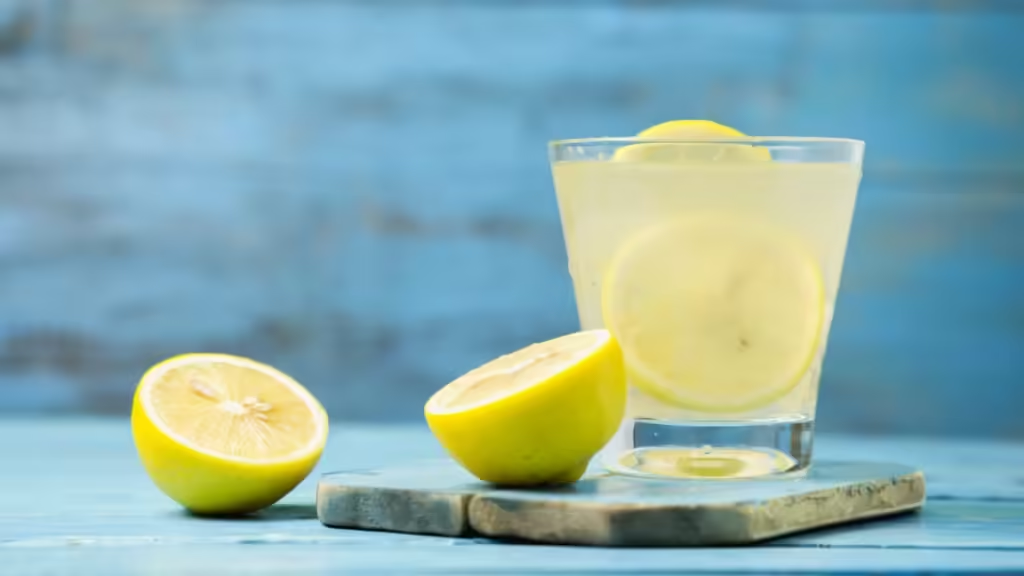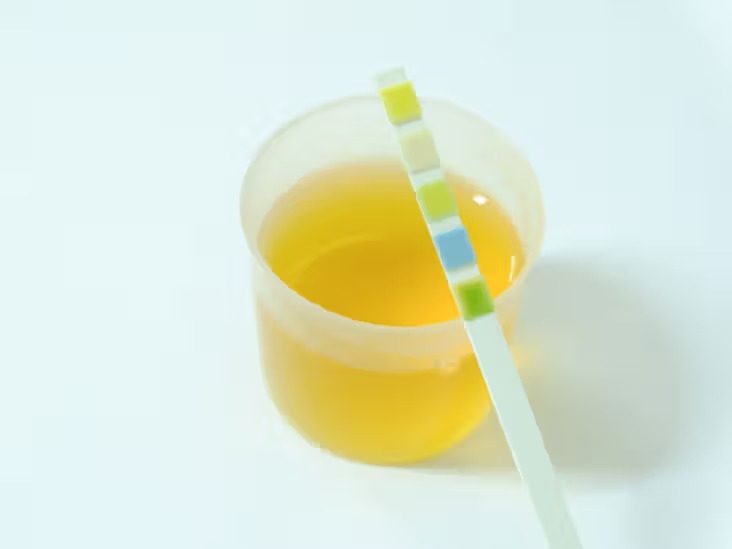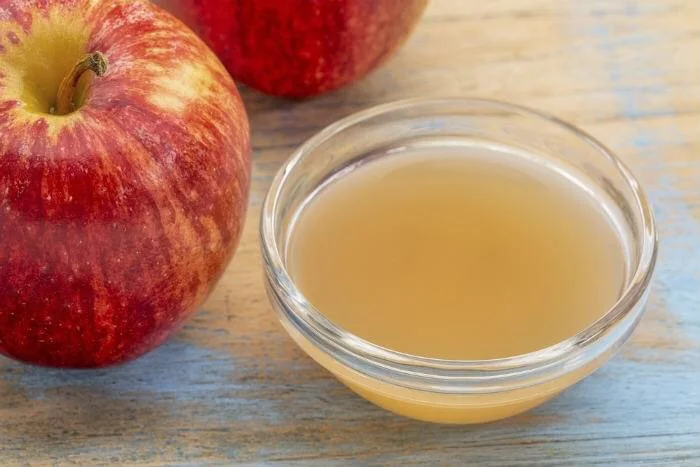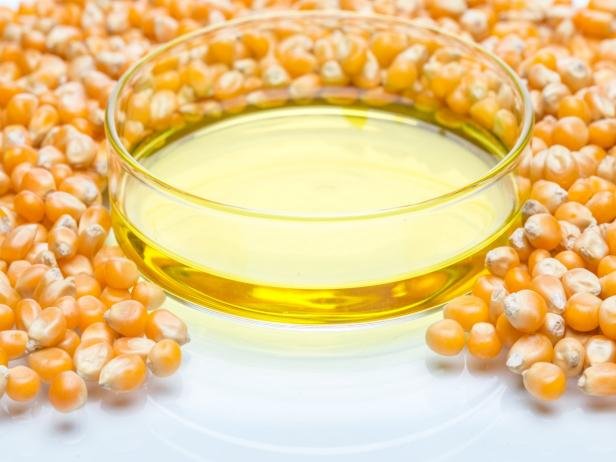Table of Contents
How does lemon juice affect gout?
Lemon juice, when metabolized, becomes alkaline in the body. This alkalizing effect can help reduce gout symptoms by lessening the pain and precipitation of uric acid. For gout sufferers, lemon juice can provide temporary relief.
Is lemon juice good for osteoarthritis?
No, lemon juice is not beneficial for osteoarthritis. The alkalizing effect of metabolized lemon juice can worsen osteoarthritis symptoms. This is due to the relationship between calcium absorption and pH levels in the body.
The Difference between gout and osteoarthritis
- Gout: Benefits from alkalizing the body (e.g., using lemon juice)
- Osteoarthritis: Benefits from slightly acidifying the body (e.g., using apple cider vinegar)
Why does alkalizing the body help gout but worsen osteoarthritis?
Gout is caused by high levels of uric acid, which can be mitigated by alkalizing the body. Osteoarthritis involves calcium deposits and joint breakdown, which can be exacerbated by an overly alkaline environment as it affects calcium absorption and deposition.
Side effects of alkalizing the body
Yes, excessive alkalizing can potentially worsen arthritis symptoms and allergies. It’s important to maintain a balance and not overdo alkalizing treatments.
How does intermittent fasting affect gout?
Intermittent fasting can increase uric acid production in the body, potentially triggering a gout flare-up in sensitive individuals. Using lemon juice or potassium citrate during fasting can help alkalize the body and mitigate this effect.
Cause of gout
The true cause of gout is often related to sluggish kidney function. Additionally, high fructose corn syrup consumption and sensitivity to purines can contribute to gout development.
Is the relief from lemon juice permanent for gout?
No, the relief provided by lemon juice for gout is temporary. It’s a quick fix that can make you feel better for a short time, but addressing the underlying causes is necessary for long-term management.
Key Points:
- Lemon juice can have different effects on gout and osteoarthritis due to their distinct natures.
- The impact of lemon juice is related to its effect on body pH after metabolism.
- Gout and osteoarthritis require different approaches for symptom relief.
So let’s dive into the details…
Lemon Juice: Good or Bad for Gout and Arthritis?

I wanted to create a short topic on why lemon juice can be both good and bad for our… it is now that’s kind of conflicting so let me explain what I’m talking about.
- Lemon juice has conflicting effects on different conditions.
- This topic will explain the contradictory nature of lemon juice‘s benefits.
Gout vs. Osteoarthritis: Understanding the Difference

If we compare gout arthritis with osteoarthritis, there’s two different things happening. With gout arthritis, you have high levels of uric acid. Now, with osteoarthritis, you don’t have uric acid. You have calcium deposits within the joints and you have a breakdown of the joints and you have inflammation.
- Gout arthritis involves high uric acid levels.
- Osteoarthritis involves calcium deposits, joint breakdown, and inflammation.
Alkalinity and Gout
Gout symptoms get better when you make things more alkaline. Okay, when you alkalize the body a little bit more…
- Alkalizing the body can improve gout symptoms.
Alkalinity and Osteoarthritis: A Potential Problem
With osteoarthritis, you typically get worse when you make things more alkaline. And that’s probably because of the relationship between calcium and pH.
- Alkalizing the body can worsen osteoarthritis symptoms.
- This is likely due to the relationship between calcium and pH levels.
Calcium Absorption and pH: The Acidic Stomach

If your stomach, for example, is too alkaline, you will not be able to absorb calcium.
- An acidic stomach is necessary for proper calcium absorption.
Alkalinity and its Effects: Arthritis Flare-ups and Allergies
So when you alkalize the body, you can actually create a flare-up with arthritis. And as a side note, you can also create a worsening of allergies, by the way.
- Alkalizing the body can lead to arthritis flare-ups and worsen allergies.
Osteoarthritis and Acidity: The Benefits of Apple Cider Vinegar

So in osteoarthritis, you want to acidify the body a little bit more. And that’s why we recommend apple cider vinegar.
- Acidifying the body can be beneficial for osteoarthritis.
- Apple cider vinegar is recommended for this purpose.
| Condition | Recommended Approach | Effect |
|---|---|---|
| Gout | Alkalize (e.g., lemon juice) | Improves symptoms |
| Osteoarthritis | Acidify (e.g., apple cider vinegar) | Improves symptoms |
Lemon Juice and its Metabolism: The Alkaline Transformation
When you consume lemon or lemon juice and it gets broken down, metabolized, it actually turns alkaline. It turns into a base.
- Lemon and lemon juice become alkaline after being metabolized.
The Impact of Alkaline Lemon Juice on Gout
And that worsens gout because it makes things more alkaline. So citric acid, whether it’s from lemons, limes, grapefruit, oranges… when it’s metabolized, it turns alkaline and it can make gout worse.
- The alkaline nature of metabolized lemon juice can worsen gout.
- Citric acid from citrus fruits becomes alkaline after metabolism.
Managing Gout Pain: Alkalizing the Urine

So to lessen the pain in the attack and the precipitation of this uric acid, all you have to do… and this is a temporary thing… is alkalize the urine.
- Alkalizing the urine can temporarily lessen gout pain and uric acid precipitation.
Osteoarthritis and Alkalinity: The Calcium Connection
Now in osteoarthritis, if you alkalize the body, you’re going to make it worse because of the connection between pH and calcium. For example, it takes a very acidic stomach to absorb calcium. And if the body is a little bit too alkaline, calcium tends to precipitate out and get stuck in the joints.
- Alkalizing the body can worsen osteoarthritis due to the impact on calcium absorption and deposition in joints.
Apple Cider Vinegar for Osteoarthritis, Lemon Juice for Gout
So with cases of osteoarthritis, they do better with apple cider vinegar to acidify the body. But with gout, they will do worse with apple cider vinegar.
- Apple cider vinegar is beneficial for osteoarthritis, but detrimental for gout.
Lemon Juice’s: Gout Relief vs. Osteoarthritis Aggravation
Now let’s talk about lemon. So when you consume lemon juice for gout, the person usually feels a lot better because you lower the acidity. But for osteoarthritis, you make it worse because you make things more alkaline.
- Lemon juice can provide relief for gout by lowering acidity.
- However, it can worsen osteoarthritis by increasing alkalinity.
Choosing the Right Remedy: Apple Cider Vinegar vs. Lemon Juice

So for osteoarthritis, use apple cider vinegar. For gout, use lemon juice.
- Apple cider vinegar is recommended for osteoarthritis.
- Lemon juice is recommended for gout.
And by the way, that’s just a temporary quick fix that’ll make you feel better for a little bit. You want to correct the underlying cause, of course.
- These remedies provide temporary relief.
- Addressing the underlying cause of the condition is crucial.
High Fructose Corn Syrup and Gout

High fructose corn syrup is at the top the list with causing gout… people that are sensitive… purines… and I put a complete topic on gout below you should check it out if you have this because the true cause of gout is a sluggish kidney and you want to keep working on your kidney.
- High fructose corn syrup is a major contributor to gout.
- A sluggish kidney is the true cause of gout.
Intermittent Fasting and Gout
Now as a side note, when you do intermittent fasting, your body will produce more uric acid as an antioxidant. And if you’re sensitive to it, it could give you a flare-up of gout.
- Intermittent fasting can increase uric acid production, potentially triggering gout flare-ups.
Managing Gout Flare-ups: Lemon Juice and Potassium Citrate
And this is why you could either do lemon juice or you can do potassium citrate to alkalize the body to chill out this acidity and turn off that gout symptom. Alright, thanks for watching and I will see you in the next topic!
- Lemon juice or potassium citrate can help manage gout flare-ups by alkalizing the body.
Summary
- Gout arthritis – High levels of uric acid.
- Gout symptoms get better when you make things alkaline. When you consume lemon juice and it’s metabolized, it turns into an alkaline substance. This makes lemon juice a good remedy for gout. But, the lemon juice remedy for gout is really just a quick fix. It will help you feel better, but you still need to work on the real cause of the issue.
- Osteoarthritis – Calcium deposits within the joints.
- Osteoarthritis symptoms get worse when things are more alkaline. When you alkalize the body, you can create a flare-up of osteoarthritis. With osteoarthritis, you need to acidify the body by taking apple cider vinegar.
- As a side note, when doing intermittent fasting, your body will produce more uric acid. If you’re sensitive to uric acid, it may cause a flare-up of gout. In this case, you can take lemon juice or potassium citrate to alkalize the body.
DATA
FREE PDF: Top 25 Home Remedies That Really Work
FAQ
Does lemon juice make gout worse?
Contrary to popular belief, lemon juice does not typically make gout worse. In fact, it may help alleviate gout symptoms. Lemon juice contains citric acid, which can help neutralize uric acid in the body. Additionally, lemons are alkaline-forming once metabolized, which can help balance the body’s pH levels. However, it’s essential to note that individual responses may vary, and moderation is key.
Tip: Try adding freshly squeezed lemon juice to warm water and consume it daily to potentially help manage gout symptoms.
What is the best drink to flush uric acid?
Several drinks can help flush uric acid from the body:
- Water: Staying well-hydrated is crucial for flushing out uric acid.
- Tart cherry juice: Rich in antioxidants and may help reduce uric acid levels.
- Green tea: Contains polyphenols that may help lower uric acid.
- Lemon water: Can help alkalize the body and promote uric acid excretion.
- Vegetable juices: Especially those made with low-purine vegetables.
The most effective approach is to combine these drinks with a balanced diet and proper hydration.
Is lemon juice bad for arthritis?
Lemon juice is generally not bad for arthritis and may even be beneficial. The vitamin C content in lemons can help boost collagen production, which is essential for joint health. Additionally, the anti-inflammatory properties of lemons may help reduce arthritis symptoms. However, as with any dietary change, it’s best to consult with a healthcare professional, especially if you have specific arthritic conditions.
What is the fastest way to flush gout?
While there’s no instant cure for gout, several strategies can help flush uric acid quickly:
- Drink plenty of water (at least 8-10 glasses a day).
- Take prescribed medications as directed by your doctor.
- Apply ice to the affected joint to reduce inflammation.
- Elevate the affected limb to reduce swelling.
- Consume cherry juice or tart cherry extract.
- Avoid alcohol and sugary drinks.
- Reduce intake of purine-rich foods.
Remember, consistency is key in managing gout effectively.
What kills uric acid?
Several factors can help reduce or “kill” uric acid in the body:
- Xanthine oxidase inhibitors (medications like allopurinol)
- Uricosuric agents (medications that increase uric acid excretion)
- Alkaline-forming foods (like most fruits and vegetables)
- Vitamin C supplements
- Staying well-hydrated
- Regular exercise
A combination of medical treatment and lifestyle changes is often the most effective approach.
Best juice for uric acid
Several juices can be beneficial for managing uric acid levels:
- Tart cherry juice: Known for its anti-inflammatory properties and ability to lower uric acid.
- Lemon juice: Can help alkalize the body and promote uric acid excretion.
- Celery juice: Contains compounds that may help reduce inflammation and uric acid levels.
- Beetroot juice: Rich in betalains, which have anti-inflammatory properties.
- Cucumber juice: Helps with hydration and has alkalizing effects.
Remember to consume these juices in moderation as part of a balanced diet.
Ginger and lemon juice for uric acid
The combination of ginger and lemon juice can be particularly beneficial for managing uric acid levels:
- Ginger has anti-inflammatory properties and may help reduce uric acid levels.
- Lemon juice can help alkalize the body and promote uric acid excretion.
- Together, they create a potent drink that may help with gout symptoms.
Try making a ginger-lemon tea by steeping fresh ginger slices in hot water and adding fresh lemon juice.
Is honey and lemon good for uric acid?
The combination of honey and lemon can be beneficial for managing uric acid levels:
- Lemon juice helps alkalize the body and may promote uric acid excretion.
- Honey has antioxidant properties that may help reduce inflammation.
- The combination may help improve overall kidney function, aiding in uric acid removal.
However, it’s important to use honey in moderation due to its sugar content, especially if you have diabetes or are watching your calorie intake.
10 minute gout cure
While there’s no instant “10-minute cure” for gout, some strategies can provide quick relief:
- Apply an ice pack to the affected joint for 10 minutes.
- Take prescribed anti-inflammatory medication.
- Elevate the affected limb to reduce swelling.
- Practice deep breathing or meditation to manage pain.
- Drink a large glass of water with lemon juice.
Remember, these are short-term relief measures. Long-term management of gout requires a comprehensive approach including diet, lifestyle changes, and medical treatment as prescribed by a healthcare professional.




